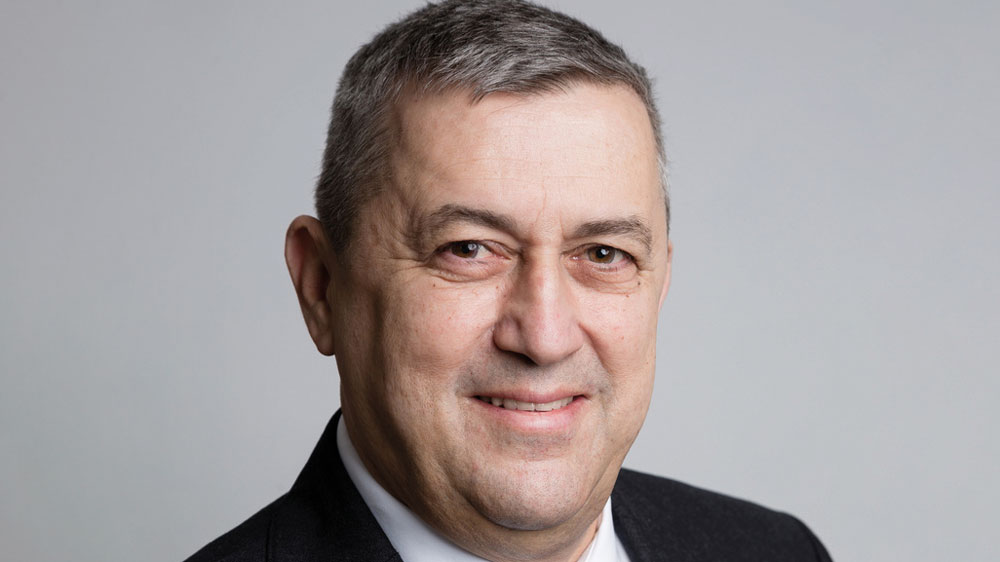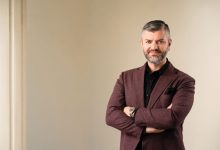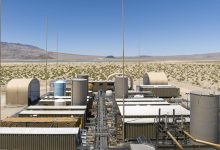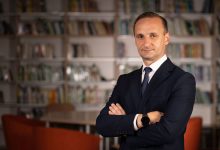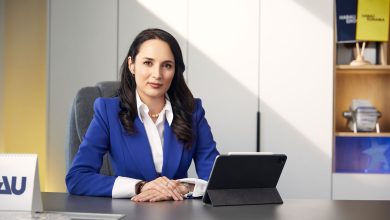Talking to experts: Sorin Mihai Radu Says Mining is not just About Coal
Ph.D. Prof. Eng. Sorin Mihai Radu, Rector of the University of Petrosani, is a mechanical engineer and graduated valedictorian at the Mining Institute of Petrosani in 1983, the Faculty of Mining Equipment and Installations, with a double distribution. In 1996 he completed a master’s program in the Reconversion and Reconstruction of Industrial Regions in Nancy (France). Since 1985 he has been a teacher, first being an assistant, lecturer (since 1991), associate professor (since 1998) and university professor (since 2003). Since 2007 he has been a PhD supervisor in the field of Mines, Oil and Gas, already having 22 PhD graduates with the Minister’s order signed. He is the author and co-author of over 30 books, has over 300 papers published at the international conferences attended, on all 5 continents. He is Doctor Honoris Causa of the Petroleum-Gas University of Ploiesti, of the University of Management and Engineering in Chisinau, member of prestigious academies abroad and an associate member of the Romanian Academy of Technical Sciences.
“After 1990 I participated in a competition and I was among the first 100 scholarship holders of the French Government in Romania, conducting, for a year, studies and research at the École des Mines in Paris for my doctoral thesis, which helped us open Petrosani University’s collaborations with universities in France and throughout Europe, conducting research visits to universities in Germany and Belgium. Together with our colleagues, we realized international research papers based on European programs or research in such a way as to make Petrosani University known, both through our graduates (there are over 5000 worldwide in the 72 years of higher education in the Jiu Valley and over 40,000 in Romania), being, together with the Oil and Gas University of Ploiesti, unique in Romania. We had and continue to have students from Australia, Canada, Latin America, Chile, Peru, Ecuador, Bolivia, we have graduates who come from African countries and returned there, as well as from the Middle East, China, Vietnam, Korea,” says Ph.D. Prof. Eng. Sorin Mihai Radu.
The mining industry is in a permanent transformation, on one hand due to the technologies of extraction of useful mineral substances, which are constantly being improved, and on the other hand, especially because some fossil fuels, and here we are talking about coal, used in thermal power plants for the production of electricity, are a factor of environmental pollution. Work is now underway to use filters at coal-fired power plants.
On the other hand, there is a desire to streamline coal mining in Romania. While until 1997-2000 the underground exploitation of coal, especially from the Jiu Valley, could be achieved even with economic losses, now this is no longer possible, and the underground activity has diminished. “I think that at present the exploitation of surface coal in the Oltenia Mining Basin needs to be continued because we have thermal power plants specialized in this type of coal, and the exploitation of coal through quarries is still efficient at the moment,” said Rector Sorin Mihai Radu.
Mining is not just about coal, because people focus Romania only on this, but mining also means the underground exploitation of salt, which is used both for the food sector and for the salt mixture used in winter for snow removal. Then we have ornamental rock quarries in our country, we have copper that is mined at Rosia Poieni (Abrud), we also have a uranium deposit, it’s true, a smaller one. There are chances that some surface gold mines will reopen, now there are problems with environmental permits.
“But we must not forget that even mineral waters are resources that mean, after all, mining. Also, in order for the quarry stone to be used for infrastructure systems, not only in Romania, but anywhere in the world, we need to have a specialized mining engineer in each quarry. Whether he is a full-time or part-time employee, a stone quarry cannot function in Romania according to current legislation. And we need more and more such rocks due to the rise, we hope, of the construction sector in road infrastructure. Mining is, therefore, complex and I would also say that the reanalysis of the situation of tailings dumps resulting from mining operations in Maramures, Transylvania and throughout the country must concern us. At present we have advanced technologies that can extract from these tailings dumps, which are already on the surface, and we no longer have to remove the deposit from the underground and we find here rare metals that are needed in everything that means cutting edge technologies, from mobile phones and up to any electronic device. If 60-70 years ago these tailings dumps were considered unprofitable, now they contain all these rare metals needed in many fields of activity,” pointed out the Rector of Petrosani University.
Like any higher education institution concerned with the continuous change on the labour market, the University of Petrosani has also adapted its educational offer to the existing requirements on the labour market. While until 1990 the tradition was in mining engineering, mining machines and equipment, currently the institution has 3 faculties, 22 specializations with a license, 20 master’s fields and 4 doctoral fields. The fields of study are extremely broad, from mining, environmental or occupational health and safety engineering to transport and traffic engineering or computers and automation, 4 economic specializations, social work, public administration, sociology, which are tempting for all students, no matter their gender, so that they can then find jobs in the labour market as soon as possible.
“Now we are preparing the accreditation for medical engineering, which is in high demand on the market due to the equipment that is used more and more in medicine. As such, we must have engineers who build this equipment, and on the other hand they must maintain it and take care of its proper functioning. This equipment is used to diagnose diseases, but also for surgery that exists in modern medicine. We also have foreign students, 350 of whom come from Bessarabia, for bachelor’s, master’s and doctoral courses and we started to regain the markets lost in the ‘90s, such as Africa, the Middle East (Jordan, Lebanon), but also the EU or Europe. It is no less true that there are also Romanians who live abroad and come to study in Romania,” metioned Rector Sorin Mihai Radu.
Petrosani University has a number of projects that have been completed within the Horizon 2020 research program with European partners, and through the Erasmus+ Program sends about 140 students in Europe, both to universities and companies, where they do both internships, as well as courses, the exams passed being recognized. The university has previously participated in other European projects, Tempus, Socrates, Leonardo de Vinci, and was recently selected among the European university consortia along with two universities in Germany, UK, Austria, Greece, Spain and Poland, being among the top 10 universities in Romania included in European consortia.
“I hope through these programs we will have our courses identical to those of other European universities in such a way that the diplomas obtained in one of the universities in the consortium are the same as at the University of Petrosani,” concluded Rector Sorin Mihai Radu.


